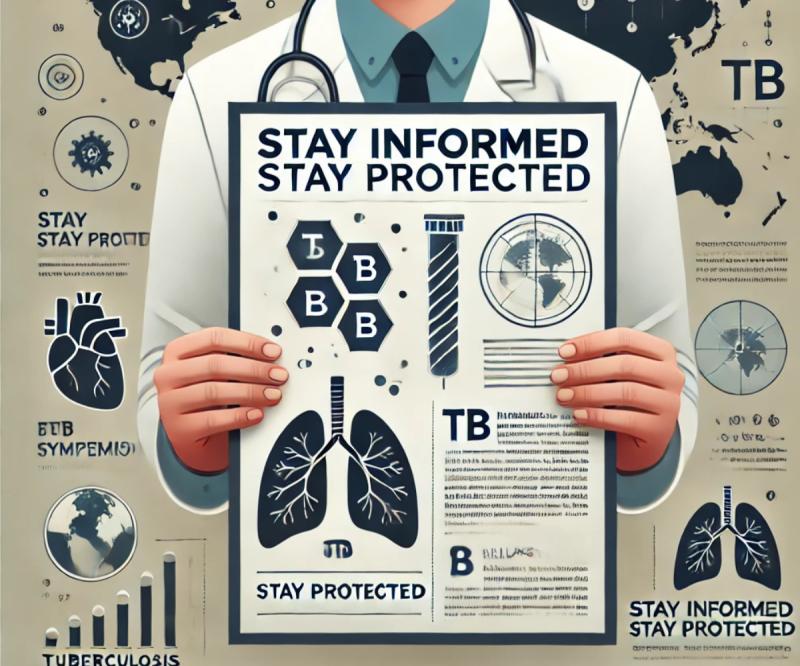
- agastya9
- 30 Oct 2024 07:10 AM
- #Health & Wellness #TB #WHO
As COVID-19 shifts out of the spotlight, tuberculosis (TB) is making a concerning comeback, reclaiming its position as the world’s top infectious disease killer. The World Health Organization (WHO) has flagged this resurgence as a major global health threat, underlining the urgent need for a renewed focus on TB prevention, diagnosis, and treatment.
What is Tuberculosis (TB)?
Tuberculosis is an infectious disease caused by the bacterium Mycobacterium tuberculosis. TB primarily affects the lungs but can impact other organs, such as the kidneys, spine, and brain. Unlike COVID-19, which spreads rapidly through the air, TB’s mode of transmission requires prolonged exposure to an infected individual. When someone with TB coughs, sneezes, or spits, TB bacteria are released into the air, potentially inhaled by those nearby. WHO estimates that about a quarter of the global population carries TB bacteria, though only 5-10% will develop the disease.
Symptoms of TB
Identifying TB early is crucial as its symptoms can be mild or easily mistaken for other conditions. Some common symptoms include:
- Persistent cough (lasting over three weeks, sometimes with blood)
- Chest pain
- Weakness and fatigue
- Weight loss
- Fever
- Night sweats
People with latent TB infection don’t feel sick or show symptoms, making it harder to identify and control the disease's spread.
Is TB Curable?
Yes, TB is preventable and curable. Treatment typically involves a 4-6 month course of antibiotics, including medications such as isoniazid and rifampicin. Adherence to the full course of treatment is essential to prevent TB bacteria from developing drug resistance. However, multidrug-resistant TB (MDR-TB) has emerged as a severe threat, complicating treatment as the disease no longer responds to first-line drugs. MDR-TB can be cured, but it requires different medications that are often more toxic and expensive.
How Does TB Spread?
TB spreads through airborne particles, typically when an infected person coughs or sneezes. Unlike COVID-19, which can spread quickly in casual contact situations, TB requires close and prolonged exposure. This means that people living in crowded or poorly ventilated environments are at higher risk. TB can affect anyone, though those with weakened immune systems, such as people with HIV, malnutrition, or diabetes, are more susceptible.
Can TB Become a Global Threat Like COVID-19?
While TB spreads less rapidly than COVID-19, the WHO warns of serious public health risks if funding and focus are not enhanced. Current efforts to eradicate TB have been hindered by inadequate funding and healthcare access challenges, particularly in low- and middle-income countries where TB is most prevalent. The WHO is urging global investment in TB prevention, diagnosis, and treatment to reach a goal of $22 billion annually by 2027.
WHO’s Strategy to End TB
The WHO is actively working with countries worldwide to curb TB by setting norms for TB care, advocating for preventive strategies, and promoting access to rapid diagnostic tests. New treatment regimens, such as the BPaLM/BPaL therapy, offer shorter and more manageable courses for MDR-TB, potentially reducing the burden on patients and healthcare systems alike.
The Bottom Line
While TB isn’t as easily transmissible as COVID-19, the resurgence of this age-old disease should be a wake-up call for global health systems. The WHO’s message is clear: without swift action, TB could pose an escalating public health risk. Investing in TB eradication not only addresses a pressing health issue but also fortifies the world’s preparedness for future infectious disease challenges.












































